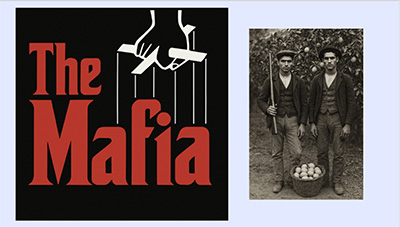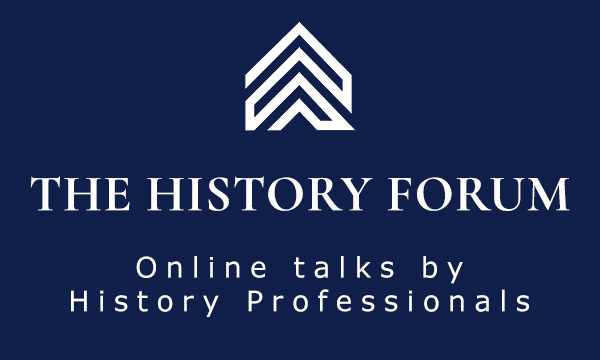
The History Forum offers online talks by professional historians covering a wide range of topics. Presenters have either published books, taught in academic institutions, or become acknowledged experts in their fields through extensive research and writing. We all have a passion to make history interesting, accessible and, where appropriate, fun.
If you cannot attend the live event, recordings will be available on request for seven days after the event.
Sign up for my newsletter to receive information and updates about The History Forum and my other work!
Welcome to The History Forum – Online Presentations by History Professionals. Join us for Series 9 (Sept-Dec 2025).
If you sign up for all 10 talks in Series 9, the cost includes a reduction (a total of £90), otherwise you can dip into individual presentations at £10 a talk.
- Recordings are available for all talks if you cannot attend the live event unless otherwise stated.
- In addition to signing up for online talks, you will receive an ON THIS DAY email giving a quick dive into a fascinating historical event.
If you cannot attend the live event, recordings are available for 7 days on request.
Pay £90 for 10 talks:
Sunday 7 September, 2025
7pm (London)
Food of the Gods: Adventures in Chocolate
SPEAKER: Melanie King
Chocolate has enjoyed a long and storied—and sometimes controversial—history since the Spanish first brought it back from Mesoamerica, where the Aztecs had used it in their rituals for human sacrifices. Since then, chocolate has been used as a murder weapon, in a plot against the British monarchy, as a hangover cure, and even as a balm for the testicles.
If the English were at first distrustful of chocolate, thinking that drinking it hot would boil the blood, the Italians enthusiastically embraced this new-fangled food, creating weird and wonderful dishes such as chocolate-covered liver and lasagne with chocolate sauce.
Melanie King, British social historian and author of Tea, Coffee and Chocolate: How We Feel in Love with Caffeine (2015), will share some of the lesser known myths and legends about the strange adventures of chocolate.
£10 for individual talk

Sunday 14 September, 2025
7pm (London)
The 1788 Morristown Ghost Hoax: The Search for Lost Revolutionary War Treasure
GUEST SPEAKER: Peter Zablocki
The saga of the Morristown ghost has been told around campfires and dinner tables in Morris County, Minnesota, USA, for generations. Local legend claimed British Loyalists secretly buried stolen Patriot treasure on Schooley Mountain as they fled the oncoming forces of George Washington during the Revolutionary War. Years later in 1788, a former school teacher from Connecticut, Ransford Rodgers, convinced local prominent Morristown families that a ghost was protecting the true location of the treasure and he alone could exercise it. Little did the victims know, Rodgers was perpetuating an elaborate hoax and eventually extorted large sums of money from the embarrassed local elite. The tale has been recounted in various sensational pamphlets and publications ever since, leaving behind a mystery of what is true or myth.
Peter Zablocki is a world history professor at Caldwell University in New Jersey. He is the President of the Denville Historical Society, Museum, and Research Centre in New Jersey and one of the town’s historians. Peter hosts the daily History Shorts Podcast. He is the author of numerous articles and books, and writes for the Smithsonian Magazine, Military History Quarterly, Military History Magazine, WWII Quarterly Journal, Honest History Magazine, and The Collector.
£10 for individual talk
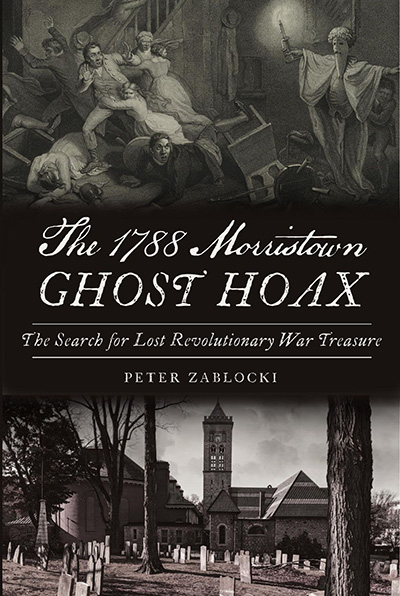
Sunday 21 September, 2025
7pm (London)
‘Oldest? Biggest? Best? The Ashmolean Museum and the University of Oxford’
GUEST SPEAKER: Dr Jim Harris
It has often been claimed that the Ashmolean Museum is the oldest University Museum in the world (and indeed the oldest museum in the modern understanding of the term).
It isn’t. It has also claimed to be the biggest University Museum in the world. Reader, it is not.
Whether it’s the best or not, on the other hand, is open to judgement.
In this talk, Dr Jim Harris, art historian and the Ashmolean’s Teaching Curator will look at the museum’s long history, its extraordinary collections, and its contemporary relationship with the University in a rapidly changing academic environment.
Dr Jim Harris first trained as an actor the Royal Academy of Dramatic Art but then studied art history at the Courtauld Institute of Art in London, where he wrote his PhD thesis on the polychrome sculpture of Donatello. He subsequently held the Courtauld’s Andrew W Mellon Research Forum Postdoctoral Fellowship and the Caroline Villers Research Fellowship in Conservation. Jim has written an abundance of publications and been responsible for exhibitions and teaching projects at the University of Oxford.
£10 for individual talk
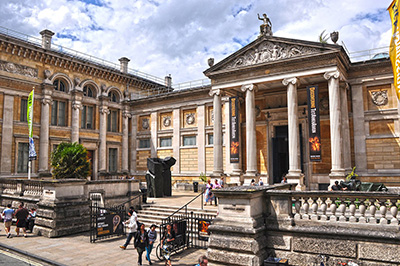
Sunday 12 October, 2025
7pm (London)
Remember Me – The Persistence of Imagery: A Talk on the Strange Power of the First Photographs
GUEST SPEAKER: Michael G. Jacob
Step into a world before photography, when every image—of heaven, of heroism, of history—was painted by imagination. Then, in 1839, something extraordinary happened. A French inventor, Louis Daguerre, unveiled a new device that would change how we see everything: the daguerreotype. For the first time, reality itself could be captured on a polished silver plate—every wrinkle, every shadow, every truth.
In this richly illustrated and lively talk, discover the magic and mystery of the daguerreotype: the world’s first successful photographic process. We’ll explore how these hauntingly detailed images shocked early viewers with their clarity, and how they soon became entwined with deeply human rituals—especially the mourning of the dead.
Originally from Liverpool, Michael G. Jacob has lived in Italy for over forty years. He taught the History of Photography and 19th-Century Photographic Materials at CRAF in Spilimbergo and at La Sapienza University in Rome.
Michael’s work on daguerreotypes—the earliest form of photography—has appeared in leading international journals such as History of Photography, The Annual of the Daguerreian Society, Kermes, and Collezionare. He is the author of Il Dagherrotipo a Colori (1992), a study of hand-coloured daguerreotypes, and more recently Ricordati di me, a guide to a collection of post mortem photographs that Michael donated to the Biblioteca Panizzi in Reggio Emilia.
Together with his wife, he also writes historical and crime fiction under the name Michael Gregorio. Above all, Michael is a passionate lifelong collector of daguerreotypes.
£10 for individual talk
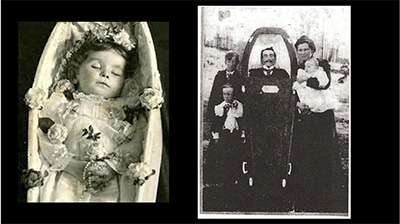
Sunday 26 October, 2025
7pm (London)
Wroxeter: life and death of a Roman city
GUEST SPEAKER: Dr Roger White
Few have heard of the Roman site at Wroxeter, in the English Midlands and close to the Welsh border, yet during the Roman era, it was Britannia’s fourth largest Roman city—bigger than many other more famous Roman cities in Britain such as Lincoln, York, Silchester, or Bath. Now all that is visible above ground of it is a cluster of ruins at its centre, dominated by a large, free-standing wall known as the Old Work. For many visitors the ruins here, which are the remains of the town’s bath house, appear to be all that remains of the city; they fail to realise that the baths were located in a larger city, buried in the grass fields surrounding it and occupying an area almost identical to that of Pompeii.
The purpose of this lecture is to outline the city’s history, from its beginnings as a legionary fortress through to its demise in the mid fifth century. Why was the city founded, and why did it die and vanish so completely? These are questions that we can now tackle given the unique ability to see beneath the soil using geophysics and aerial photography, enabling us to generate the most complete picture of almost any other city in Britannia.
Dr Roger White is an Honorary Senior Lecturer in archeology at the University of Birmingham. He has worked on Wroxeter and its history for 50 years, and published extensively on it with outputs ranging from technical reports and monographs to popular books and articles. Britannia Prima. Britain’s last Roman province (2007) was the winner of the Current Archaeology Book of the Year 2008 and Wroxeter: Ashes under Uricon: A Cultural and Social History of the Roman City was published in 2022. The site continues to hold a fascination for him.
£10 for individual talk
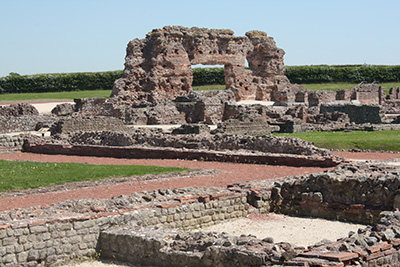
Sunday 2 November, 2025
7pm (London)
Blood and Fire: A Short History of the Salvation Army
GUEST SPEAKER: Dr Phil Davies
The Salvation Army is perhaps best known for its charitable work and social services, especially for the homeless and disadvantaged people. Other public perceptions of the Salvation Army are of its brass bands and uniformed members shaking a collection box in the high street. These images illustrate the combined functions of the Salvation Army as a social movement and a church.
This talk will trace the origins and development of the Salvation Army in the context of the rise of religious non-conformism and social movements in nineteenth century Britain in response to abject poverty and social deprivation. The Founder of the Salvation Army, William Booth, merged poverty alleviation with religion (‘Soup, soap, and salvation’) and quasi-military fervour as the means of bringing about social change. Today, the Salvation Army operates in 133 countries across the world and has a worldwide membership of over 1.7 million people.
Dr Philip Davies is a retired lecturer in social and political science at the University of Oxford and has worked as a senior civil servant in the UK Cabinet Office and HM Treasury. His parents, grandparents and great grandparents were Salvation Army officers. He signed the Salvation Army’s ‘Junior Soldier’s Pledge’ at the age of six, but is no longer a practicing salvationist.
£10 for individual talk
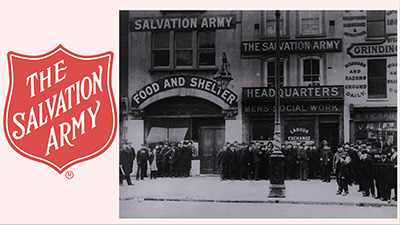
Sunday 16 November, 2025
7pm (London)
Shadows and Silk: The World of the Female Spy
SPEAKER: Melanie King
Do women make better spies than men? Mata Hari, Ethel Rosenberg, Gertrude Bell, biblical figures such as Rahab and Delilah, even La Femme Nikita … female spies have captured the imagination throughout history and in fiction. From ancient intrigue to modern intelligence, women have shaped the shadowy world of espionage in ways both daring and unexpected. This lecture explores the fascinating lives of female spies across history, from Biblical tales to WWII resistance heroines and Cold War atom spies. We’ll examine their unique strategies and societal advantages, as well as the secrets behind the unseen power of women in the world’s most covert operations.
Relevant books by Melanie King: The Lady is a Spy: The Tangled Lives of Stan Harding & Marguerite Harrison (2019); Secrets in a Dead Fish: The Spying Game in the First World War (2014)
£10 for individual talk

Sunday 30 November, 2025
7pm (London)
Women of the High Seas: The Untold Stories of Female Pirates
GUEST SPEAKER: Loona Hazarika
Join historian Loona Hazarika for a riveting online talk that dives deep into the bold, brazen world of female pirates. With a keen interest in the rebellious figures of maritime history, Hazarika brings passion and insight to the often-overlooked stories of women who ruled the waves (and with a wife from Penzance takes a keen personal interest in this).
At the heart of the talk are the legendary Mary Read and Anne Bonny—two extraordinary women who shattered expectations, disguised themselves as men, and fought fearlessly during the Golden Age of Piracy.
But they were far from alone. The talk will also spotlight other formidable women of the sea, such as Grace O’Malley, the Irish pirate queen who parleyed with Queen Elizabeth I; Ching Shih, who commanded the largest pirate fleet in history in 19th-century China; and Jeanne de Clisson, the Breton noblewoman who became a pirate to avenge her husband’s death. You’ll also hear about Rachel Wall, a rare American female pirate; Sayyida al-Hurra, the Moroccan queen who ruled the seas against European powers; and Charlotte de Berry, a legendary figure from seafaring lore.
Through gripping stories, historical insights, and a touch of swashbuckling flair, this session explores how these women defied the odds and made their mark on maritime history.
Perfect for history lovers, rebel hearts, and sea story enthusiasts alike. Join us and discover the pirate queens history tried to forget!
Loona Hazarika was educated at the University of Cambridge and is a historian. He has been an official tour guide of the British Museum. Today, Loona now has his own tour company called Let’s Discover London and offers live guided tours, or virtual tours. He has appeared on the TV and radio many times, including working with Dave Myers the Hairy Biker on Sky Atlantic’s ‘Urban Secrets’.
£10 for individual talk
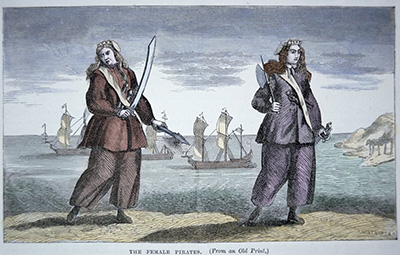
Sunday 7 December, 2025
7pm (London)
Republic: Britain’s Revolutionary Decade, 1649-1660
GUEST SPEAKER: Dr Alice Hunt
Alice Hunt talks about her new, critically acclaimed ‘biography’ of the 1650s, when England was—for the first and only time in its history—a republic, led by the soldier-statesman, Oliver Cromwell. She tells both the political and the cultural story of this dynamic and daring period which turned Britain upside down, debated previously unthinkable ideas about liberty and sovereignty, and enabled alternative forms of religion and art to flourish. Republic was published by Faber in 2024 and selected as a book of the year by The Times and the Telegraph.
Alice is Professor of Early Modern Literature and History at the University of Southampton. She has previously written about Tudor monarchy and James I, and is the author of The Drama of Coronation (Cambridge, 2008).
£10 for individual talk
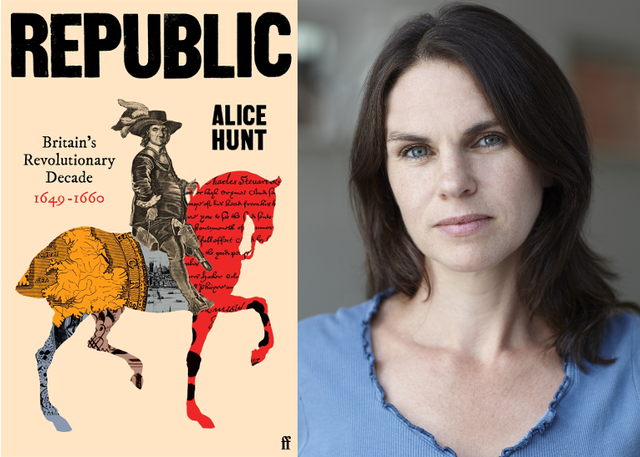
Sunday 14 December, 2025
7pm (London)
The Birth of the Mafia: Crime, Power, and the Making of Modern Sicily
GUEST SPEAKER: Dr Ross King
The Mafia conjures images of violence, secrecy and strict codes of honour—but how did it all begin? Ross King, author of The Shortest History of Italy, sheds light on a dark but fascinating chapter in Sicilian history that still shapes the island’s identity today. In 19th-century Palermo and Western Sicily, the rise of the Mafia (Cosa Nostra) was closely tied to the upheavals of Italian Unification. Far from being a relic of the distant past, the Mafia emerged at a pivotal moment in Italian history, exploiting political instability, corrupt officials and lucrative industries such as lemon and sulphur exports.
King explores the truth behind the myth of ‘rustic chivalry’ and ‘men of honour,’ exploring how organised crime thrived by infiltrating the very institutions meant to uphold justice. He examines how the Mafia gained control—and its name—and the nature of its first business ventures. Along the way, King separates legend from reality, revealing a world of ruthless ambition, hidden networks, and the uneasy relationship between crime and the state.
Dr Ross King is the author of numerous books on Italian art and history, including Brunelleschi’s Dome and The Bookseller of Florence. His latest book is The Shortest History of Italy (2024).
£10 for individual talk
